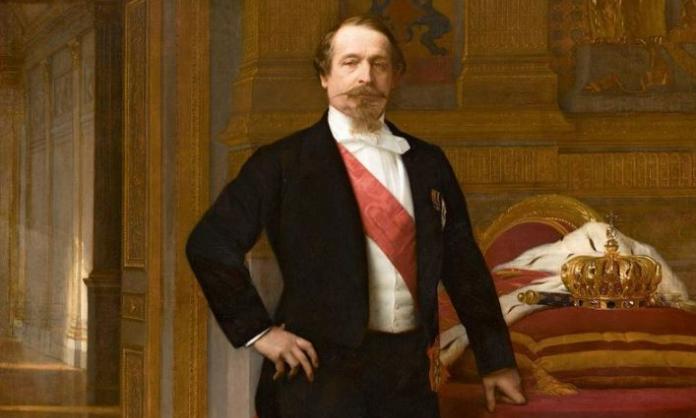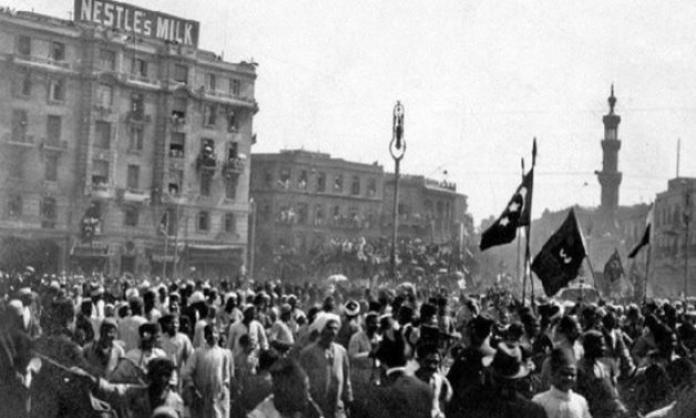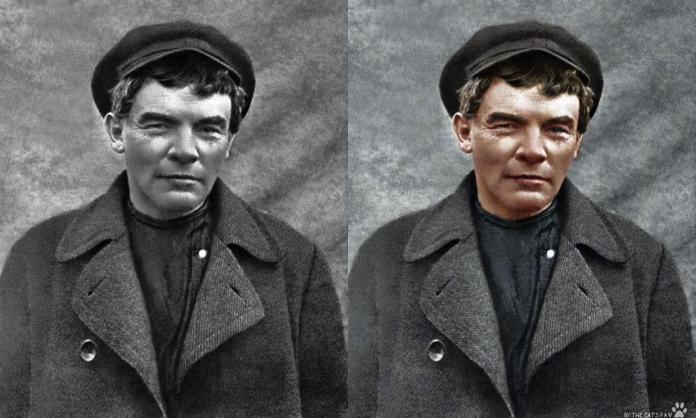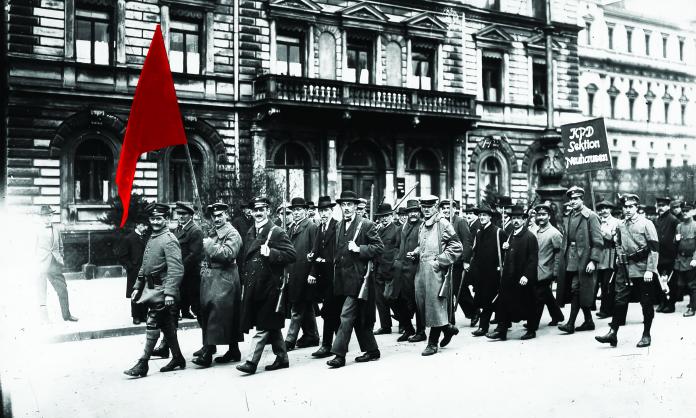Karl Marx’s pamphlet The Eighteenth Brumaire of Louis Bonaparte, written in 1852, is a masterpiece of journalism with an enduring relevance that might surprise those who think Marx is old hat or simply haven’t read his writings. He begins with the insurrectionary uprising in Paris in February 1848, an uprising which, as Marx’s collaborator Frederick Engels wrote in 1895, “found its echo in the victorious insurrections in Vienna, Milan and Berlin ... all Europe was drawn into the movement, all the way to the Russian border”.
Marx and Engels were active in these revolutions and a further revolutionary uprising in Paris in June 1848, which was important to the development of their analysis of both the capitalist class (bourgeoisie) and the working class (proletariat). “The first great battle for dominance was fought in Paris between proletariat and bourgeoisie”, wrote Engels of the June uprising. The result, as Marx observes in the Brumaire, revealed much about the contenders: “even the victory of its class so shattered the bourgeoisie that it fled back into the arms of the same monarchist-feudal reaction that had just been overthrown”.
This is one of the most important conclusions Marx and Engels drew from these revolutionary upheavals. The Brumaire provides an incisive analysis of the interests and motivations of the capitalists, lessons that should be burned into the consciousness of today’s anti-capitalist activists: the oppressed should never trust even the most liberal and radical sounding capitalists. The bourgeoisie fear the power of the working class. They prefer reaction over workers taking the sort of action that points towards their power to end capitalist rule.
The February 1848 uprising ended with the creation of a provisional government, won, writes Marx, “by the proletariat arms in hand”. It was the urban masses who “mounted the barricades” and laid the basis for what they optimistically proclaimed a “social republic”. But the ruling circles did not share the masses’ yearning for radical change, only the downfall of the constitutional monarchy. In fact, the rulers were divided on their goals. A “circle of the politically privileged” among the capitalists intended to overthrow only the finance capitalists, who were their rivals, and to introduce some electoral reforms to privilege themselves. “In no period, therefore”, writes Marx, “do we find a more confused mixture of ... apparent harmony of the whole of society; and ... profound estrangement of its elements”.
The National Assembly that was formed after an ensuing election was immediately understood as reactionary by the workers. It had one intention: “removing Blanqui and his comrades – that is, the real leaders of the proletarian party – from the public stage”. Marx comments sarcastically that “whereas a limited section of the bourgeoisie ruled in the name of the king, the whole of the bourgeoisie will now rule in the name of the people”. But they reject the demands of the Paris proletariat as “utopian nonsense, to which an end must be put”. To this the Paris workers replied with the June insurrection, “the most colossal event in the history of European civil wars”.
A bourgeois republic triumphed, supported by the aristocracy of finance, the industrial bourgeoisie, the middle class, the petty bourgeois, the army, the “intellectual lights”, the clergy and the rural population. “On the side of the Paris proletariat stood none but itself”, Marx writes. “More than three thousand insurgents were butchered after the victory, and fifteen thousand were deported without trial. With this defeat the proletariat passes into the background on the revolutionary stage. It attempts to press forward again on every occasion, as soon as the movement appears to make a fresh start.” But it had suffered a catastrophic defeat and would not impose its will for decades to come.
The government formed by the republican bourgeoisie on 24 June was not won by a liberal capitalist revolt against the monarchy, but “through a rising of the proletariat against capital ... laid low with grapeshot”. Their rule “signifies the unlimited despotism of one class over other classes”. And on 10 December, the monarchy was restored under Louis Bonaparte, nephew of Napoleon I.
A similar process unfolded around the Middle East during the 2011 “Arab Spring”. There was euphoria and seeming “harmony” as dictators were toppled. But sections of the ruling elites, including some who supported the original uprisings, opposed workers’ radical demands and contributed to counter-revolution, which installed repressive governments.
In 1848, the French bourgeois republic demonstrated the limits to capitalist democracy that we can recognise to this day: “The tradition of declaring freedoms and rights while ensuring they are limited by appeals to ‘order’, the ‘rights of others’ ‘conditions fixed by law’, ‘public safety’ and the like was written in the blood of the workers of Paris”.
In December 1851, Bonaparte ordered troops to occupy the parliamentary chamber, dismissed the elected representatives and declared himself dictator over French society. With wit and literary flair, Marx paints an intricate portrait of the French bourgeois political actors who contributed to this catastrophe.
His multidimensional narrative reveals the relationship between politics, economics and social prejudice; between subjective and objective factors driving the different historical actors. As such it is one of the best ripostes to the argument that Marx was a crude, mechanical, economic reductionist:
“What kept the two factions apart ... was not any so-called principles, it was their material conditions of existence ... the rivalry between capital and landed property. That at the same time old memories, personal enmities, fears and hopes, prejudices and illusions, sympathies and antipathies, convictions, articles of faith and principles bound them to one or the other royal house, who denies this? ... [I]n historical struggles one must distinguish ... the phrases and fancies of parties [and individuals] from ... their real interests, their conception of themselves from their reality.”
Their economic interests could not simply determine either faction’s supremacy in the parliament where the drama was played out.
The bourgeoisie, Marx argues, came to see that democracy, which enabled them to appear to represent the whole of the people, entails a dangerous contradiction. Democratic rights mean workers, the poor, the peasants or even sections of the urban middle classes can legitimately organise around their own interests, which collide with bourgeois interests. And so, Marx writes: “The bourgeoisie had a true insight into the fact that all the weapons it had forged against feudalism turned their points against itself ... that all the so-called bourgeois liberties and organs of progress attacked and menaced its class rule at its social foundation and its political summit simultaneously”.
Increasingly, in the struggle to both maintain some appearance of democracy and to undermine it, demands for reforms were dismissed as “socialistic” and utopian. And “the logical conclusion [is] that its own parliamentary regime, its political rule in general, was now also bound to meet with the general verdict of condemnation as being socialistic”. So the need for order is fetishised and debates in parliament become a threat.
“The struggle of the orators on the platform evokes the struggle of the scribblers of the press ... the [parliamentary] representatives, who constantly appeal to public opinion, give public opinion the right to speak its real mind ... The parliamentary regime leaves everything to the decision of majorities; how shall the great majorities outside parliament not want to decide? When you play the fiddle at the top of the state, what else is to be expected but that those down below dance?”
Gradually, “the bourgeoisie confesses that its own interests dictate that it should be delivered from the danger of its own rule ... and the sword that is to safeguard it must at the same time be hung over its own head as a sword of Damocles”.
Parliament increasingly cannot resolve issues even of some importance to the capitalists. For example, the National Assembly could not agree on a plan for a Paris-Avignon railway, first raised in the winter of 1850, in two years of deliberation. “Where it did not repress or pursue a reactionary course it was stricken with incurable barrenness”, as Marx describes it.
Think of the decades of unresolved debates in a rich country like Australia where cities become choked with traffic, lacking in housing and amenities for a growing population. Think of the decades in which the world bourgeoisie has not been able to tackle climate change because of the reactionary barrenness of the capitalist class and its hangers-on.
Marx’s sketch of Bonaparte conjures a picture of the head of the most powerful state today: “Never has a pretender speculated more stupidly on the stupidity of the masses”. The idiosyncrasies of Bonaparte are examined in the context of wider, objective dynamics of capitalism.
Marx describes the growing power of the executive arm of the state as a “terrifying parasitic body which enmeshes the body of French society and chokes all its pores”. It appeared under the absolute monarchies and contributed to the decline of feudalism. Now, a heavy burden of taxation, which alienates wide layers of the population, funds a monstrous array of bureaucracies and institutions that defend bourgeois power.
He outlines a complex mix of individual stupidity and hypocrisy, the clash of real economic interests between different factions of the capitalists, all leading increasingly to paralysis. And so “the National Assembly flared up repeatedly over ... unmistakable attempts to gain popularity at its expense, over the growing danger that this adventurer...would venture a desperate coup”.
It is irrefutable, Marx says, that “the bourgeoisie’s moral sway over the mass of the people was lost in the same measure as its actual domination developed”. So by parliamentary subterfuge, including “reforms” that denied 3 million the right to vote, parliament “smuggled the election of the president out of the hands of the people”. The reactionary Party of Order appeared to have a decisive victory. But it had merely laid the basis for more manoeuvres that led to the dictatorship of Bonaparte.
This uninspiring, reactionary buffoon was able to appear to rise about the fray of useless parliamentary debates and pose as the real defender of order. Twelve months before, Louis Bonaparte declared: “Above all things, France demands tranquillity”. Marx remarks: “The respectable, hypocritically moderate, virtuously commonplace language of the bourgeoisie reveals its deepest meaning in the mouth of the autocrat”. Think of US President Donald Trump, British Prime Minister Boris Johnson or Home Affairs Minister Peter Dutton, known for nothing but their authoritarian mediocrity.
Debates have raged ever since about the nature and meaning of “Bonapartism” – what it tells us about the relationship of the capitalists and the state and how they rule. Each example has its own specificity. But military dictatorships, fascism and far-right semi-dictatorial regimes have been a regular feature of capitalism, confirming Marx’s argument that the bourgeoisie is committed to democracy and freedom only in as far as they strengthen bourgeois rule.
Marx argues that Bonaparte’s regime reveals the oppressive foundations of the state, pushing increasing numbers to consider a further revolution. He is confident that “the overthrow of the parliamentary republic contains within itself the germ of the triumph of the proletarian revolution ... The bourgeois order ... has become a vampire that sucks the blood from the [small property owners’] hearts and brains and casts them into the alchemist’s caldron of capital”.
Millions hovered on the margin of existence in dire poverty. Many of them moved from country to city. And the interests of the peasants, who had provided a reactionary base for Bonaparte’s rule, now “find their natural ally and leader in the urban proletariat, whose task it is to overthrow the bourgeois order”.
Marx ends with a metaphor with a double meaning: “But when the imperial mantle finally falls on the shoulders of Bonaparte, the bronze statue of Napoleon will come crashing down from the top of the Vendôme Column”. Bonaparte’s coup established a thoroughly bankrupt state that posed enormous problems for the bourgeoisie. And Marx is confident that the proletariat will once again rise in rebellion. He didn’t know how prophetic this was. In 1871, the revolutionaries of the Paris Commune would bring that very statue crashing down.
Reading classics like Marx’s Brumaire give us a perspective on the world as it is today, even though it has radically changed in the intervening 170 years. Marx was thinking through the meaning of the actions by various social layers and classes, providing insights into their interests and role under capitalism. The similarities in the way politicians and capitalists ruled then illustrate that their actions are structured into the way those who rule under capitalism operate. There is nothing accidental about the appalling state of the world, and it cannot be put right by simply replacing one lot with another. The whole system which breeds their inhumanity needs to be overthrown.











